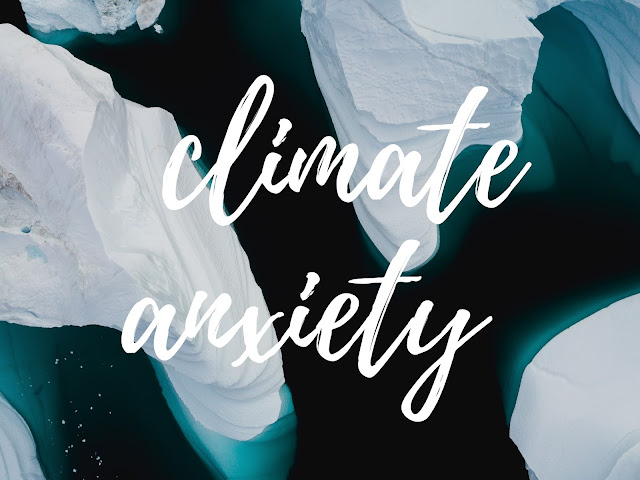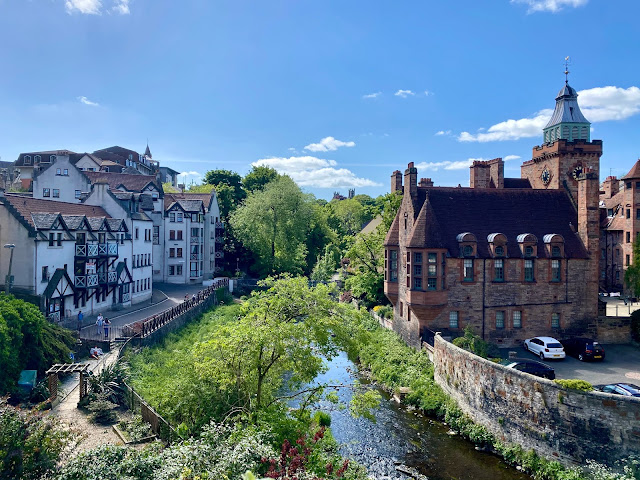
What is Eco-Anxiety and How Do We Handle It?
Climate anxiety or eco-anxiety is, to boil it down to the basics, fear caused by climate change and environmental disaster. It’s the feelings of dread you experience when you think about the environmental problems our planet is facing. It’s the awful sense of fear when you contemplate what our future, and that of the next generation, will look like. It’s the gnawing guilt about not doing enough to help, and continuing to do things you know aren’t good for the planet. It’s anger, panic, overwhelm and feelings of helplessness. And as our environmental issues continue to grow, more and more people are feeling this anxiety than ever before.
One of the reasons that climate change feels so scary and overwhelming, is because it feels beyond our control. In a world of over seven billion people, what can one individual person do in the face of such a massive issue? Which is only aggravated by the realisation that of those seven billion, many of them really don’t grasp the severity and the urgency of the situation, or they think it’s someone else’s problem to solve. Governments around the world have declared a climate emergency, and yet it still feels like business as usual for the most part (pandemic notwithstanding), with so much work left to do.
Which can be so incredibly frustrating for those who care deeply about climate change. It feels like you’re screaming at someone to put out the fire, while they just stand their and watch it burn (quite literally sometimes). It can make you feel so utterly helpless, watching the world crumble, and not being able to stop it, and feeling like no one else cares enough. As you can imagine, this has become increasingly prevalent in recent years, especially in young people, as the severity of the climate crisis continues to increase, and they fear for their futures and those of future generations. Greta Thunberg is probably the most well-known figure of recent years, but research has shown that over half of children and teenagers in England feel some form of environmental anxiety, and children as young as six years old have shown awareness and concern for the problem. So if you feel this way, you are definitely not alone.
It’s also very important that we consider how eco-anxiety affects people around the world in different ways too. For those of us living in more developed countries, particularly the white population of the world, the impact of climate change often feels removed, into the future or to far-flung places around the globe, because we’re not seeing the effects on our doorsteps. But for people living in those ‘far-off’ places, most often populations who are Black, Indigenous and people of colour in the Global South, the effects are not some distant, future problem; they are happening right now. These are people who are already being forced to deal with massive changes to their climate, and how they live within it, even though they are typically the nations who have made the least contributions to carbon emissions and global warming. They’re left struggling, while the rest of the world seems to be continuing on as normal. Climate change is a global issue, and our response to it must also be global and intersectional, responding to all needs.
It’s these real, tangible problems caused by climate change that have led Caroline Hickman, of the Climate Psychology Alliance, to point out that “eco-anxiety is not a mental health problem that needs to be fixed or cured, rather it is a healthy response to the situation we are facing.” Climate change and environmental disasters are very real threats to our world and our way of life, so it’s a perfectly normal, rational reaction to feel scared and anxious about it. This is why climate anxiety isn’t listed as a specific condition by most mental health organisations, though there is professional help available, if your eco-anxiety is becoming paralytic and unbearable. The American Psychological Association, who define climate anxiety as “a chronic fear of environmental doom”, did release a report which detailed the effects climate change can have on your mental health, as although eco-anxiety itself is not an illness, it certainly has adverse effects on your wellbeing.
So what can we do? Take action.
This is the most effective method; making steps to help the environment, while also soothing at least some of your anxiety around it. Channel all that stress and nervous energy into positive actions. Even if those changes are small, doing something makes you feel that little bit less helpless. Anyone worried about climate change has no doubt already taken steps to reduce their environmental impact, but the anxiety often comes from feeling like that’s not enough. It can feel like a tiny drop in the massive oceans of the world’s problems. But every little does help, and at the very least, it can lighten your own feelings of guilt about not doing enough. None of us can individually save the world, but we can all play our part. I can’t find the quote again now, but I read somewhere once that climate change won’t be solved by a few people doing sustainability perfectly, but by everyone doing it, even if it’s imperfectly.
Now it’s true that some people don’t want to do more for the planet because they either don’t believe in climate change, they don’t think one person makes much of a difference, or they simply don’t care. But for many, it’s because they don’t want to give up the lifestyle they already have, or they can’t afford to spend money on making changes. So another way of helping your own anxiety, is to talk about the changes that you’ve made, or would like to make, to educate people on the options available to them. There are plenty of ways to reduce your environmental footprint that don’t require you to give up your lifestyle (like making switches to plastic-free products), or that will save you money in the long run (like insulating your home, which will reduce your energy bills). It took me five minutes to switch my default search engine to Ecosia, which uses your searches to plant trees! There are also an increasing number of carbon offsetting projects that people can donate to around the world. These aren’t just planting or protecting trees either: they can be projects to help developing countries make progress and advance but using more renewable energy and sustainable practices, for example. However, we definitely shouldn’t become reliant on these, and use them to let people “off the hook” for their own carbon footprint, as massive reductions are still needed regardless. It’s true that these larger changes are generally beyond the reach of individuals, but the more people who make small changes, the bigger the cumulative effect will be.
Then of course, you can look out for other ways to get involved in sparking change, to push for these larger actions. Like I said, none of us can individually solve this problem. It requires action on the part of governments and businesses to make the biggest changes. But we can all fight for that action. We can sign petitions, donate if you’re able to, take part in marches and protests, vote for parties and policies that will bring about the much-needed systemic changes, and make our voices heard.Don’t scream at the wall or into the void; scream at the people who have the power to make the changes that the rest of us can’t. My own climate anxiety is a huge reason why I’ve started studying Environmental Studies part-time with The Open University, to learn more about the ways I can help, and with the hope of eventually working in the sector, and being a part of those larger, systemic changes.
Finally, remember it’s ok to take a break for your own mental health. Yes, this is a huge issue that isn’t going away yet, and we have to take more action. We absolutely cannot give up on the problem: we have to keep pushing for people and governments to realise the severity of the situation. But sometimes you also have to accept that even with all the best intentions, you won’t be able to change everyone’s minds or force them to change their actions and behaviours. It’s incredibly frustrating, but you do also have to look after your own wellbeing, which might mean accepting that some things are beyond your control. It’s also important to acknowledge your feelings, to talk about them and recognise that they’re valid; there are even programmes that have been started to help people deal with their eco-anxiety. Even just knowing that so many others are feeling the same way can be reassuring. I do various things for my mental health, and I do find that setting aside time for my yoga practice is good for taking a break, and my meditation practice helps me be more accepting of what I cannot change. I’m a long way from perfect when it comes to that last part, but it’s called a ‘practice’ for a reason!
And celebrate the wins! There’s a lot of work still to be done, but it can be a big boost to see pieces of good news about the ways that we have helped the planet already. The constant streams of bad news on our social media and TVs can make all of us feel anxious about many issues, not just the climate, which again, is a perfectly normal reaction and response to this news. Yes, it’s important we keep talking about them, so as not to get complacent. But it’s also ok to step away from them for a moment, just to catch your breath, before plunging back into the fight. Seeing some positive news can provide that spark of optimism for the momentum to keep going.
Climate change is “our greatest threat in thousands of years”, as Sir David Attenborough succinctly said, and it’s the most normal reaction ever to feel scared and anxious about that. We have a lot to do and a long way to go, but becoming paralysed with fear and giving up is definitely not the answer. Acknowledge and talk about your feelings; make changes to reduce your impact; educate and inspire others to do the same; make your voice heard. You don’t have to be the perfect environmentalist, and you don’t have to face this alone. It’s a global issue and a fight we’re all in together.
You May Also Like

Eco Friendly Gift Ideas
13 December 2018

